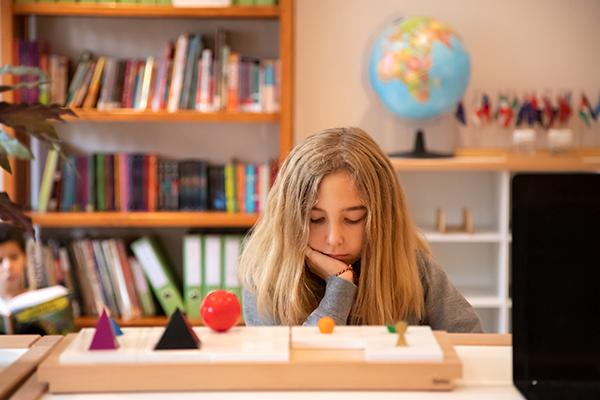
Montessori Education: A Guide to the Method
Montessori education is a child-centered approach to learning that emphasizes independence, hands-on learning, and respect for the individual. It is based on the belief that children are naturally curious and eager to learn, and that they learn best by doing.
Montessori classrooms are carefully prepared vueducation that are designed to meet the needs of children of different ages. The materials and activities in the classroom are arranged in a way that allows children to choose what they want to learn and how they want to learn it. Teachers play a supportive role, providing guidance and encouragement as needed.
Some of the key features of Montessori education include:
- Hands-on learning: Children learn best by doing, so Montessori classrooms are full of hands-on materials and activities. These materials are designed to help children explore different concepts and skills in a meaningful way.
- Independent learning: Montessori schools believe that children learn best when they are given the freedom to explore and learn at their own pace. Children are encouraged to choose their own activities and to work independently.
- Respect for the individual: Montessori schools believe that each child is unique and learns in their own way. Teachers are trained to observe children and to tailor the learning experience to each child’s individual needs.
- Multisensory learning: Montessori schools use a variety of sensory experiences to help children learn. This includes sight, touch, hearing, smell, and taste.
- Order and beauty: Montessori classrooms are designed to be orderly and beautiful environments. This helps to create a calm and peaceful atmosphere that is conducive to learning.
Montessori education has been shown to be effective in helping children develop a love of learning, self-confidence, and independence. It has also been shown to improve academic achievement, social skills, and problem-solving skills.
If you are considering a Montessori education for your child, there are a few things you should keep in mind. First, Montessori schools can be expensive. Second, not all Montessori schools are created equal. It is important to do your research and find a school that is a good fit for your child.
If you are interested in learning more about Montessori education, there are many resources available online and in libraries. You can also contact your local Montessori school for more information.
Here are some of the benefits of Montessori education:
- Develops independence: Montessori education encourages children to be independent learners. They are given the freedom to choose their own activities and to work at their own pace. This helps them to develop a sense of self-confidence and self-reliance.
- Promotes social skills: Montessori schools emphasize cooperation and collaboration. Children learn to work together and to help each other. This helps them to develop strong social skills that they will need throughout their lives.
- Improves academic achievement: Montessori education has been shown to improve academic achievement in all areas, including math, reading, and science. Children who attend Montessori schools tend to score higher on standardized tests than children who attend traditional schools.
- Develops critical thinking skills: Montessori education teaches children how to think for themselves and to solve problems. They are encouraged to ask questions and to explore different ideas. This helps them to develop critical thinking skills that will be essential for success in school and in life.
- Prepares children for the 21st century: Montessori education teaches children the skills they need to succeed in the 21st century. These skills include critical thinking, problem-solving, collaboration, and creativity. Children who attend Montessori schools are well-prepared for college and for the workforce.
If you are considering Montessori education for your child, I encourage you to learn more about it. It is a wonderful way to help your child reach their full potential.